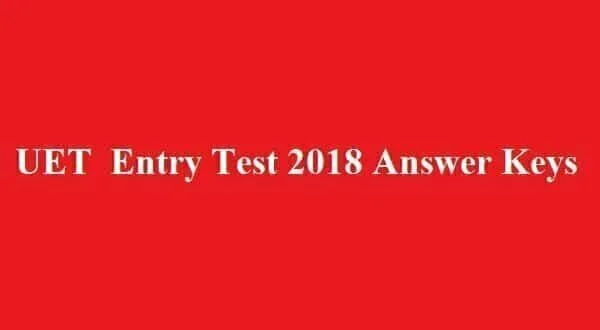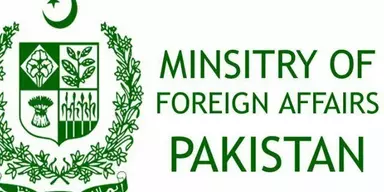University of Engineering and Technology Lahore has successfully conducted the ECAT Entry Test 2018 for admissions in Engineering and Technological Programs across public and some private universities of Punjab. The ECAT Answer Keys have also been announced and published on the official website of UET.
Although students get a rough idea of their expected marks from the answer keys but still final result announcement is also important for final marks confirmation purpose and further admission requirements. Within-day or two, UET will announce the detailed result of ECAT Entry Test 2018 on its official website. The students can get the announced result card printed for onward submission to BS and BSc Engineering and Software Technology programs.
UET Entry Test 2018 Online Result
Move to this link to check your Entry Test Result Status Online
http://admission.uet.edu.pk/Modules/EntryTestResult/UserRoles/Candidate/LoginPage.aspx
UET ECAT Entry Test 2018 Answer Keys Blue, Green, Brown, Red
UET Lahore ECAT 2018 Answer Keys Online:
http://admission.uet.edu.pk/Modules/EntryTest/Default.aspx#
The 4th consultative session “Higher Education in Pakistan: Challenges and Opportunities” was held on Friday at the University of Education’s Township campus.
According to a press release, representatives of federal Higher Education Commission (HEC), Punjab HEC, Vice-Chancellors (VCs) of various universities and other stakeholders attended the event.
Vice-Chancellor University of Education Dr Rauf-e-Azam said the dialogue was aimed to discuss the problems being faced by higher education sector and put forward meaningful recommendations.
He said universities should be given autonomy, but we need to believe on self-accountability as well to achieve excellence. Punjab Higher Education Commission Chairman Dr Nizam-ud-Din said universities should focus on research culture adding the universities should produce good teachers and excellent researchers as well.
GCU Vice Chancellor Dr Hassan Amer Shah said there should not be any political interference in the affairs of universities.
The dialogue unanimously agreed on; protection of autonomy of universities, at least four percent of GDP to education and ¼ of the same for higher education sector with constitutional protection, all provinces should have their higher education commissions and they should work according to the decision and guidelines are given by the Council Common Interest (CCI) and constitution of a national task force to re-visit Higher Education Commission Act and recommend improvements in higher education sector.















